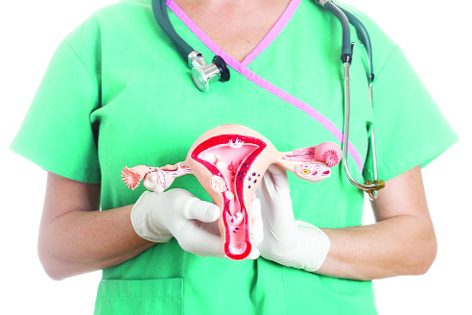For many women, the journey with fibroids can be challenging, often raising concerns about their fertility and future family planning. Fibroid
For many women, the journey with fibroids can be challenging, often raising concerns about their fertility and future family planning.

Fibroids, which are non-cancerous growths in the uterus, can affect various aspects of a woman’s reproductive health. If you’ve had fibroid surgery, you might be wondering about your chances of having children in the future. Here’s what you should know.
Understanding fibroid surgery and fertility
Fibroid surgery, known as myomectomy, involves the removal of fibroids from the uterus while preserving the uterine wall. This procedure is often recommended for women who experience severe symptoms, such as heavy bleeding, pain, or pressure, and who wish to maintain their fertility.
The good news is that many women go on to have successful pregnancies after undergoing fibroid surgery. However, the outcome can depend on several factors.
Woman with fibroid [Premier Health]
Types of myomectomy
- Abdominal myomectomy: This is performed through an incision in the abdomen. It’s suitable for large or multiple fibroids and allows for comprehensive removal.
- Hysteroscopic myomectomy: This procedure is done through the vagina and cervix using a hysteroscope to remove fibroids located inside the uterine cavity. It’s less invasive and generally used for fibroids within the uterine lining.
- Laparoscopic myomectomy: Also known as keyhole surgery, this technique uses small incisions and a laparoscope to remove fibroids. It typically results in a shorter recovery time and less scarring.

Recovery and conception
After myomectomy, it’s essential to allow your body adequate time to heal before trying to conceive. Your doctor will provide specific recommendations based on your individual case, but general advice includes:
- Healing time: Most doctors recommend waiting at least six months to a year before attempting to conceive. This allows your uterus to heal properly and reduces the risk of complications.
- Follow-up care: Regular follow-up appointments are crucial to ensure that your uterus has healed well and that there are no complications. Your doctor will monitor your recovery and provide guidance on when it’s safe to start trying for a baby.
Fertility outcomes
Many women who have undergone fibroid surgery successfully conceive and have healthy pregnancies. The surgery itself can improve fertility by alleviating symptoms that may have previously impacted conception. However, individual outcomes can vary:
- Uterine health: The location and size of the fibroids, as well as the extent of the surgery, can influence fertility. In some cases, the presence of scar tissue or changes to the uterine lining might affect implantation.
- Pre-surgery fertility: If you had fertility issues before surgery, these factors might still be relevant after the procedure. Your overall reproductive health plays a significant role in your ability to conceive.
Risks and considerations
While many women go on to have healthy pregnancies after fibroid surgery, it’s important to be aware of potential risks:
- Scar tissue: Scar tissue from surgery can sometimes affect the uterus, although this is relatively rare. Your doctor will assess your individual risk.
- Preterm birth: There may be a slightly increased risk of preterm birth in pregnancies following fibroid surgery, depending on the extent of the fibroid removal and any subsequent healing issues.
Seeking support
If you’re considering pregnancy after fibroid surgery, it’s essential to maintain open communication with your healthcare provider. They can offer personalised advice and support based on your specific circumstances.
In addition, seeking support from fertility specialists or joining support groups for women who have undergone fibroid surgery can provide valuable insights and encouragement.
Having children after fibroid surgery is certainly possible for many women. While the journey can come with its own set of considerations, understanding the impact of the surgery on your reproductive health and following medical advice can help maximise your chances of a successful pregnancy..
If you have any concerns or questions about your fertility after fibroid surgery, consult with your healthcare provider to discuss your options and ensure the best possible outcome for your future family plans.
